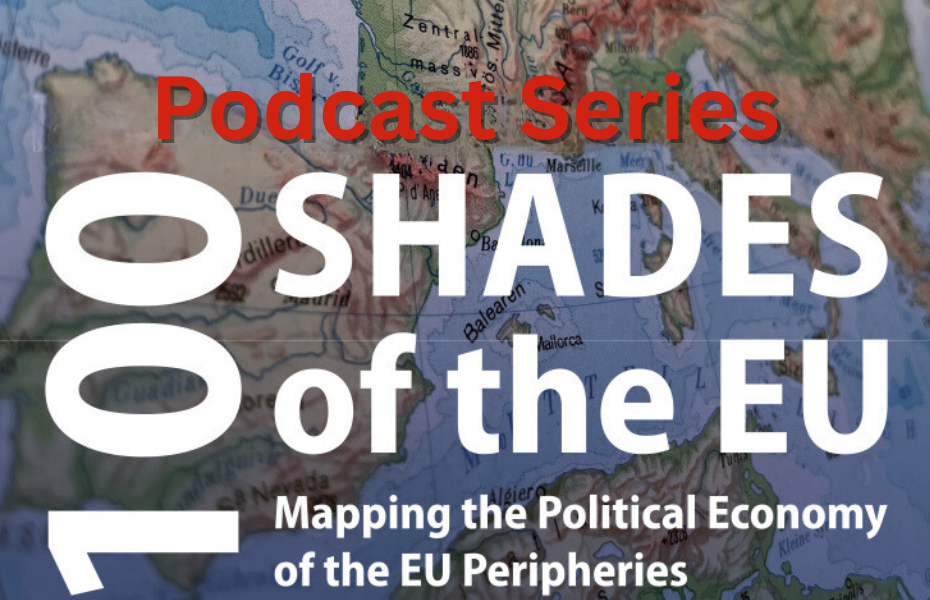What is a periphery and how has it been defined in Europe through history? What are the internal EU peripheries identified by the authors of the study Hundred Shades of the EU? Do all peripheral member states have the same economic pattern? How is the state of labour in these countries, and how is it articulated with global value chains and the globalisation, with the economic and overall evolution of the European Union, and with the globalised financialisation? What are the societal patterns and the political priorities in the peripheries, and do those allow for cross-national alliances beyond regional borders? How heavily reliant on the core are the peripheral member states? How deep does their marginalisation run into the EU bodies and the collective visions? What are the political perspectives for the EU and EU societies, and what recommendations can be drawn from that study for the left?
This podcast offers 7 takes on transform!’s study in an attempt to synthesize its main findings. We invite you to listen to its episodes below.
The study Hundred Shades of the EU — Mapping the Political Economy of the EU Peripheries was published in March 2022 by transform! europe with the support of the Rosa-Luxemburg-Foundation. It can be read and downloaded on our website together with the executive summaries in English, Portuguese, Greek, Hungarian, Lithuanian, Bulgarian, Czech, Italian, Polnish, German, Roumanian, and Spanish.
Episode 1: What is the Periphery?
The first episode introduces the study “100 Shades of the EU: Mapping the Political Economy of the EU peripheries” and talks about what the peripheries are and how they were created historically.
Episode 2: What are the EU Peripheries?
This episode explains which countries belong to the periphery of the EU and which are the core of power. It focusses on how do unequal exchange and development affect the EU and the integration process.
Episode 3: Peripheral Economic Models
This episode compares existing economic models in Southern Europe and Central Eastern Europe. On what do they stand, and why are they considered dependent?
Episode 4: The state of Labour in the EU Peripheries…
… Between Cheapness and Precariousness. This fourth episode traces the position of labour in the two peripheries of the EU. How did precarity in the South and cheap labour in the East become the main features of these economies?
Episode 5 : On the Political Fringes of the EU
The fifth episode talks about peripherality as a political issue. Do peripheral countries have an impact on the functioning of the EU, how well are they represented in the EU?
Episode 6: How the Core sees the Peripheries…
… or Old Wine in New Bottles. This sixth episode shows that the core countries of the EU, despite their declarations, perceive both the “South” and the “East” through the prism of the West-centric and colonial experiences of the world’s core.
Episode 7: What is Next?
The series’ final episode sums up the study’s conclusions and points out some possible ways of changing the peripheral position and the EU.
Further Resources
- The study “100 Shades of the EU” (March 2022, EN) & executive summaries in various languages (EN, IT, ES, HU, BG, CZ, RO, PL, LT, DE, PT, GR)
- An introduction to the study “100 Shades of the EU” by its editors Tatiana Moutinho and Dagmar Švendová (February 2022)
- CrossBorder Talks’ special podcast episode (December 2022) on the “Hundred Shades of the EU” study: an interview with two of the authors Veronika Susova-Salminen and Giuseppe Celi, audio and transcript
- Report on the European Forum Workshop (November 2021)
- Original invitation to the April 2023 Trieste Conference, including full conference programme
- Interview with Tatiana Moutinho about the 2022 study and the Trieste conference (June 2023)
- Podcast series synthesizing the “100 Shades of the EU” report (June 2023)
